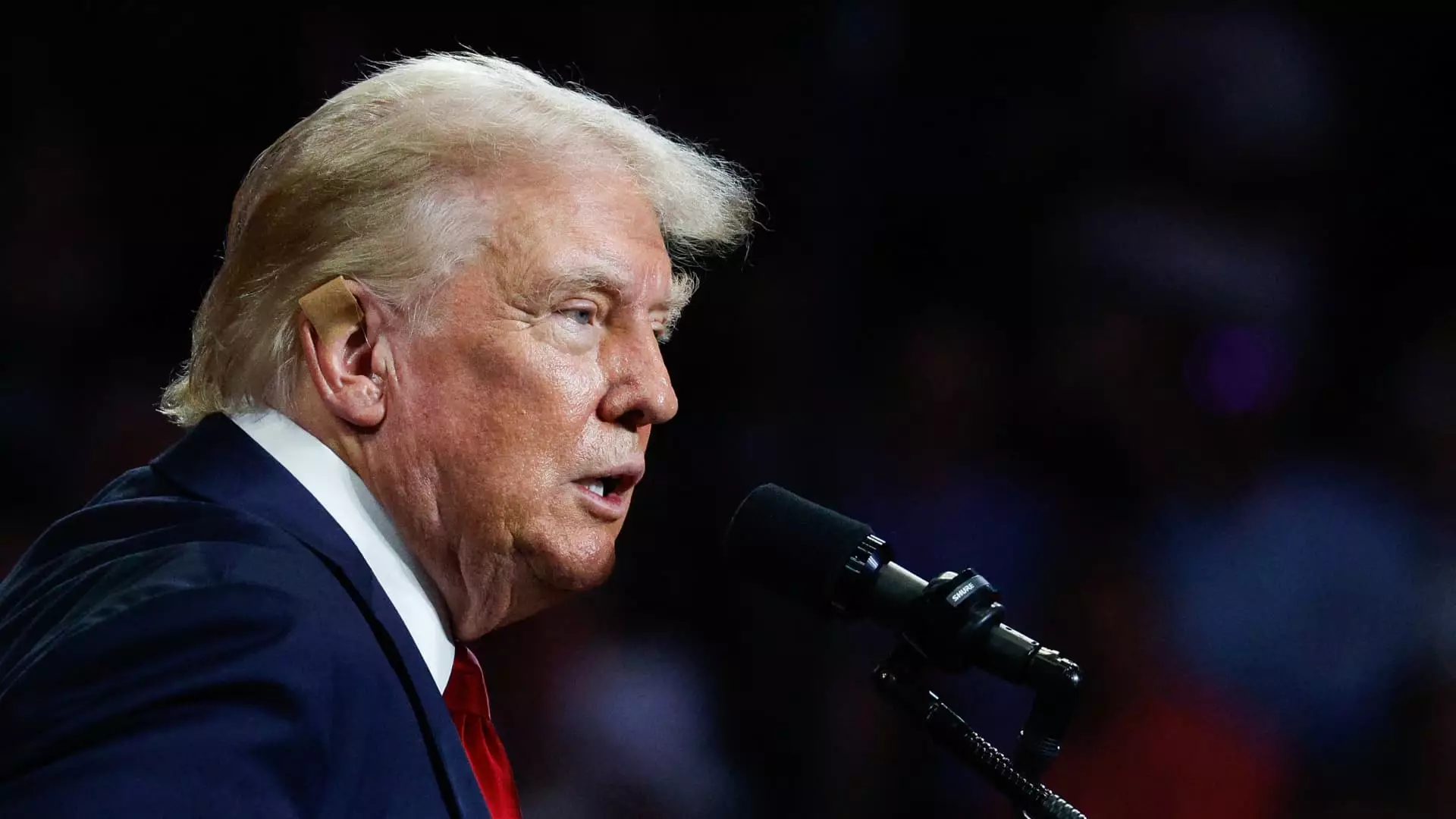During his keynote speech at the biggest bitcoin conference of the year in Nashville, former President Donald Trump hinted at the idea of establishing a U.S. bitcoin strategic reserve. This proposal raised eyebrows and sparked discussions within the cryptocurrency community. However, upon closer examination, Trump’s plan falls short of what some crypto enthusiasts were anticipating.
Trump’s Pledge to Maintain Bitcoin Holdings
Instead of promising to create an official U.S. bitcoin strategic reserve, Trump vowed to maintain the current level of bitcoin holdings that the U.S. government has accumulated from seizing assets from financial criminals. This stance, while in line with the principle of holding onto bitcoin through market fluctuations, differs from the government’s current practice of regularly auctioning off seized cryptocurrencies.
Trump’s approach stood in contrast to that of third-party presidential candidate Robert F. Kennedy Jr., who went as far as proposing to establish a 4 million bitcoin strategic reserve to match the country’s gold reserves. Kennedy’s plan involved purchasing a significant amount of bitcoin daily, a move that would have far-reaching implications for how the cryptocurrency is regulated and valued.
While Trump’s proposal was met with mixed reactions, it highlighted the challenges and complexities associated with creating a bitcoin strategic reserve comparable to the gold standard. This endeavor would likely require new legislation and congressional approval, signaling a lengthy and rigorous process.
The Role of Lawmakers in Shaping Bitcoin Policy
Following Trump’s speech, Senator Lummis announced her intention to introduce legislation supporting a strategic bitcoin reserve. This proposal aims to accumulate 1 million bitcoin over five years, with a focus on reducing the national debt. The funding for the reserve would come from existing Treasury Department funds, including tax revenue.
Establishing a U.S. bitcoin strategic reserve would have significant political implications, particularly in the context of upcoming elections. The success of such legislation would likely hinge on a Republican majority in the White House, Senate, and House. The potential impact of a bitcoin reserve on the economy and national debt cannot be understated.
The creation of a national bitcoin reserve would signal a new chapter in the cryptocurrency’s journey to legitimacy. This move could solidify bitcoin’s position as a recognized asset class, following the approval of spot bitcoin exchange-traded funds in U.S. markets earlier this year. However, the volatile nature of bitcoin raises questions about its long-term stability.
Bitcoin’s Market Response
Despite the buzz surrounding Trump’s proposal and the potential establishment of a U.S. bitcoin strategic reserve, the cryptocurrency market has remained relatively stable. Bitcoin’s price has held steady around $68,000, indicating that investors are taking a wait-and-see approach to the unfolding developments in the crypto landscape.
Trump’s proposal for a U.S. bitcoin strategic reserve has sparked discussions about the future of cryptocurrency policy and regulation. While the idea of creating a national bitcoin reserve is intriguing, the practicalities and implications of such a move warrant careful consideration and deliberation. Only time will tell whether Trump’s vision will materialize and how it will shape the broader cryptocurrency landscape.


Leave a Reply